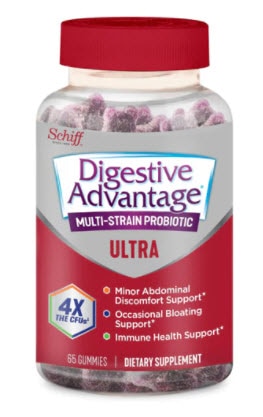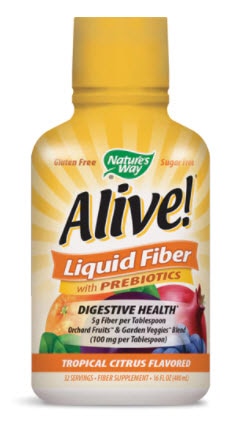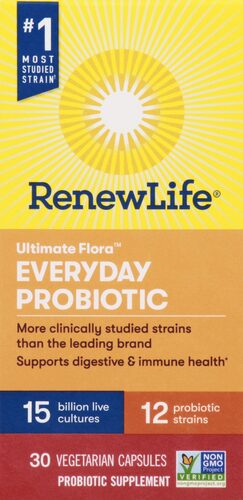According to
CDC data, digestive diseases account for 22.4 million doctor’s office visits and 8.3 million emergency care visits every year. Anything that throws off digestion can affect your health on every level -- from physical well-being to the strength of your immune system.

How long does digestion take?
The speed of digestion, known as transit time, is about 24 to 36 hours in healthy people. However, both food choices and physiological factors influence how quickly you digest. Underlying digestive conditions can also interfere with the process, making transit time either too fast or too slow.
Believe it or not, digestion begins even before you take the first bite of a meal. Just the smell of food cooking primes your digestive system—that’s why your mouth waters when you smell something particularly delicious.
Once you start eating:
- Salivary enzymes begin to break down carbohydrates
- A mix of digestive juices work to break down proteins in the stomach
- The pancreas and gallbladder secrete enzymes and bile
- Fats and most of the remaining carbohydrates are broken down in the small intestine
- Nutrients are absorbed before food passes to the colon
- Microbes in the colon break down undigested fiber
- Water is absorbed, leaving stool to be eliminated
Problems occur when proper transit time is disrupted or when outside factors interfere with any step in the digestive process.
What hinders healthy digestion?
Stress is one of the biggest culprits behind digestive upset. In stressful situations, your body puts most of its energy toward keeping you alert and ready to respond to potential threats, leaving “non-essential” processes like digestion for later.
As more Americans report feeling stressed, it’s no wonder so many also suffer from digestive problems.
But stress isn’t the only factor. Many common diet and lifestyle habits—as well as diseases—can interfere with or inhibit digestion. These include:
- Artificial food additives, such as artificial sweeteners
- Bile insufficiency due to gallbladder or liver problems
- Celiac disease
- Dehydration
- Dysbiosis (an imbalance between harmful and beneficial gut microbes)
- Eating too fast and/or too much
- Food allergy or intolerance
- Gastroparesis (slow stomach emptying)
- High-fat, high-salt foods
- Hormonal changes
- Hypochloridria (low stomach acid), often associate with aging
- IBS and IBD
- Inadequate sleep
- Lack of exercise
- Low intake of healthy omega-3 fats
- Low-fiber diet
- Pancreatic insufficiency (lack of necessary digestive enzymes)
A number of medications may also cause digestive problems, including SSRIs,
NSAIDS, antacids, proton pump inhibitors,
anti-hypertensives, prescription painkillers, birth control pills and some antibiotics.
Supplements and foods good for digestion
Dietary change is a simple, effective method for improving digestion and achieving a healthy transit time. Replacing processed, high-fat and salty foods with whole or minimally processed plant foods – fruits, vegetables, whole grains and legumes – can alleviate a wide range of symptoms and promote regularity.
Oddly, this is a bit of a paradox. Highly processed, low-fiber foods like white flour and sugar are quick to pass through your digestive tract; fiber-rich foods, on the other hand, slow digestion down. But high-fiber foods actually improve transit time.
How? Insoluble fiber in particular helps to draw water into your stool, which increases bulk and supports healthy bowel habits. Upping your fiber intake too quickly can cause constipation, though, so take a gradual approach if you’re not used to eating large amounts of whole plant foods. Drink more water for additional digestive support.
Need help with specific symptoms? Try these natural remedies:
- For gas, bloating and/or nausea: Ginger, turmeric, licorice, fennel, mint
- For constipation: Demulcent herbs and foods, including deglycerized licorice (DGL), flax seeds and slippery elm
- To improve fat digestion: Capsaicin
- To boost low stomach acid: Betaine HCl
- To stimulate and support the digestive process: Bitter greens and herbs, digestive bitters, digestive enzymes
- For general digestive support: Cumin, turmeric
If you’re taking any prescription medications, check for potential interactions before
beginning a natural supplement regimen.
Speeding up digestion: A word of caution
Remedies for slow digestion and digestive discomfort can be helpful if lifestyle or disease is the root of the problem. However, you shouldn’t try to digest faster just to “get rid of” food after overeating.
Beware of diet gimmicks claiming you can “shed pounds” by speeding up transit time or taking supplements with laxative effects. Instead, focus on supporting healthy digestion every day. Returning to these habits after an unusually large meal will help you feel better and keep you balanced.
Should digestive symptoms persist even after you make changes, see your doctor.
Featured products:










